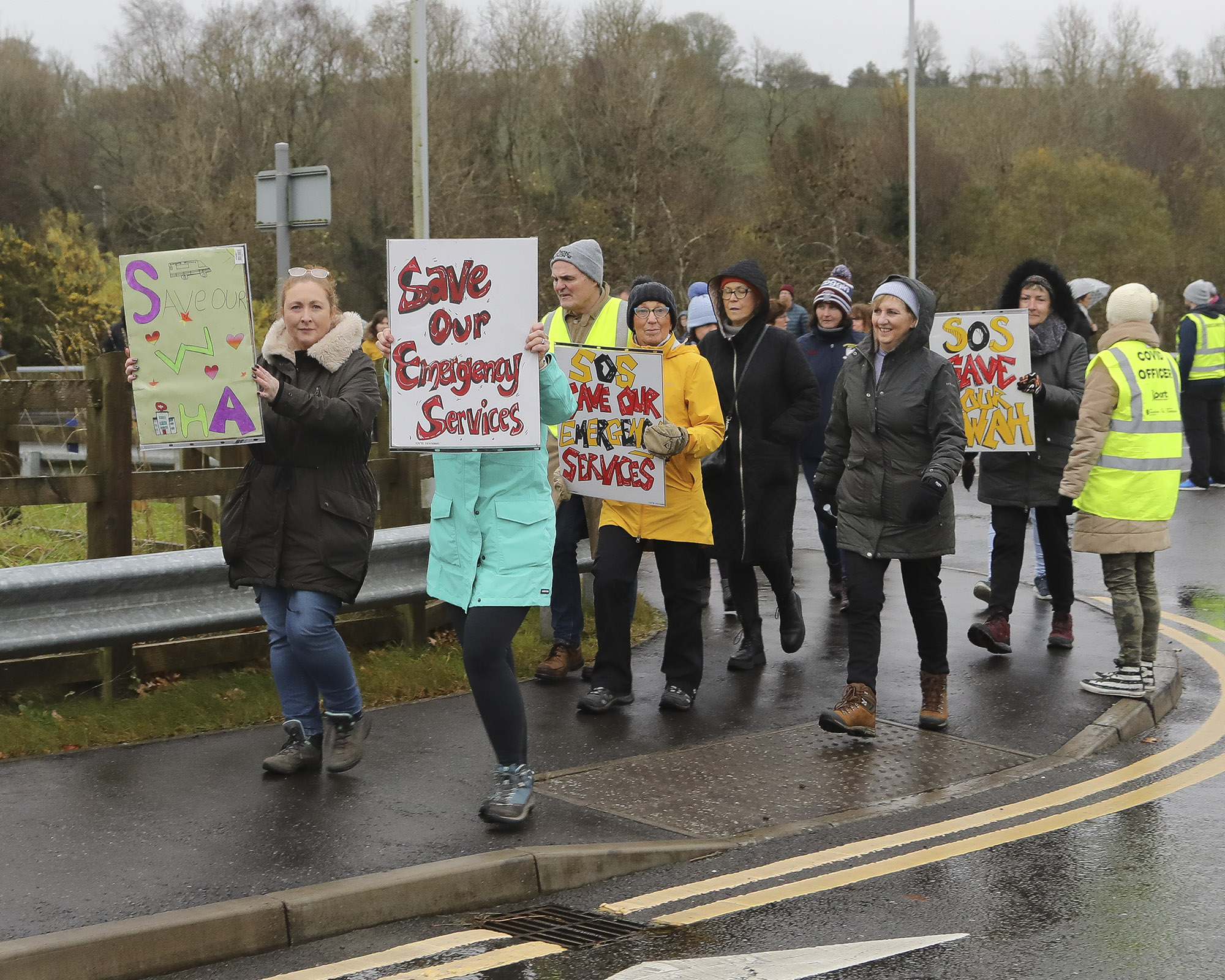THERE is a small glimmer of hope that the local community campaign to save emergency general surgery at the South West Acute Hospital is having an impact, on the back of new comments from the Department of Health to the ‘Herald.
Essentially, the Department has now confirmed to the ‘Herald that when the planned Elective Overnight Stay Centre is opened at the SWAH, general surgeons will be able to assist with emergency life-and-death situations.
This is a new development, with it previously stated elective and emergency surgery pathways must be kept separate, as set out in the Department’s Review of General Surgery, published in June.
One of the gravest concerns of the local community since it was announced last month that emergency general surgery at the SWAH was to be suspended, due to a lack of surgeons, has been that patients who urgently need emergency surgical intervention may not survive the lengthy journey to other hospitals for treatment.
The Western Trust has repeatedly stated such scenarios have been rare at the SWAH, however that has provided little comfort to the Fermanagh community worried about their own and loved ones’ lives.
There has also been grave concern as to what would happen a patient if life-threatening complications arose during non-emergency surgery and other procedures, prompting significant fear about the knock-on affect removing emergency surgery from the hospital would have on other SWAH services.
While by no means a solution to the crisis, and while it will also depend on a number of factors, comments from the Department this week have given some hope that cover could eventually be in place to deal with both scenarios.
In a letter delivered to Fermanagh and Omagh Council last night (Tuesday), permanent secretary at the Department, Peter May, stated if the planned Elective Overnight Stay Centre, whenever it is opened at the SWAH, was carrying out general surgery procedures it would “ensure a general surgical presence that can provide to support other specialties.”
When contacted by the Herald for clarity on what this meant, a spokesman for the Department replied, “An elective overnight stay centre means that there will be medical cover at SWAH including a core team of doctors. This can include general surgeons.”
When asked for further clarity on this, particularly in light of the conditions set out in its Review of General Surgery, the Department confirmed, “To ensure the very best patient outcomes, separation of elective and emergency care is important. This means a doctor scheduled for elective work should not be used for emergency work.
“However, on the rare occasion that a general surgeon working on elective patients in a hospital is required to provide surgical support in an emergency situation, they would do so.”
‘Sticking plaster’
Local community campaign group Save Our Acute Services has welcomed the development, given it may save lives, but warned it was still uncertain and only a “sticking plaster” to the current problems.
Cllr Donal O’Cofaigh from SOAS said Western Trust chief executive Neil Guckian had recently alluded to such a move at a recent meeting on the SWAH crisis in Irvinestown, adding that it would depended on a lot of other factors.
Cllr O’Cofaigh said, however, he felt the community campaign in response to the crisis was starting to have an impact.
“I think the campaign has caught the imagination of the local community, and its undoubted the political parties are now much more alert to the concerns of the community. I also think the Trust and the Department recognise the scale of opposition that exists in the community to the reduction in our acute services.
“The campaign is now moving from a campaign to stop the closure, to one calling for the restitution of the service. We’re going to need to deal with the misinformation being provided by Trust and Department’s spokespeople.”
Cllr O’Cofaigh added the comments to the Herald from the Department were “welcome.”
“This is the first positive outcome from the campaign that we’ve seen,” he said. “This is directly in contradiction to the guidance that was adopted in June of this year in the review of emergency surgery, which attempted to split very firmly surgeons performing elective and emergency care.
“This may result in lives being saved, so it is welcome, but it has to be said this is no where near what we require, it’s a sticking plaster solution.
“Again, there is no certainty even whether this will proceed. There’s no certainty whether the elective care centre will have a focus on general surgery, and there is no certainty, as Mr Guckian himself explained in the Irvinestown meeting, over whether the funding necessary for this to have this sort of focus would be forthcoming from the Department.”
SOAS’s Helen Hamill noted the latest development once again contradicted previous statements from health chiefs.
“What I find very disconcerting is the number of unclear statements, which seem to contradict each other,” she said. “It’s very confusing, and could have an impact on it for staffing in other areas. There is no transparency, there seems to be so many versions of the actual truth.”









